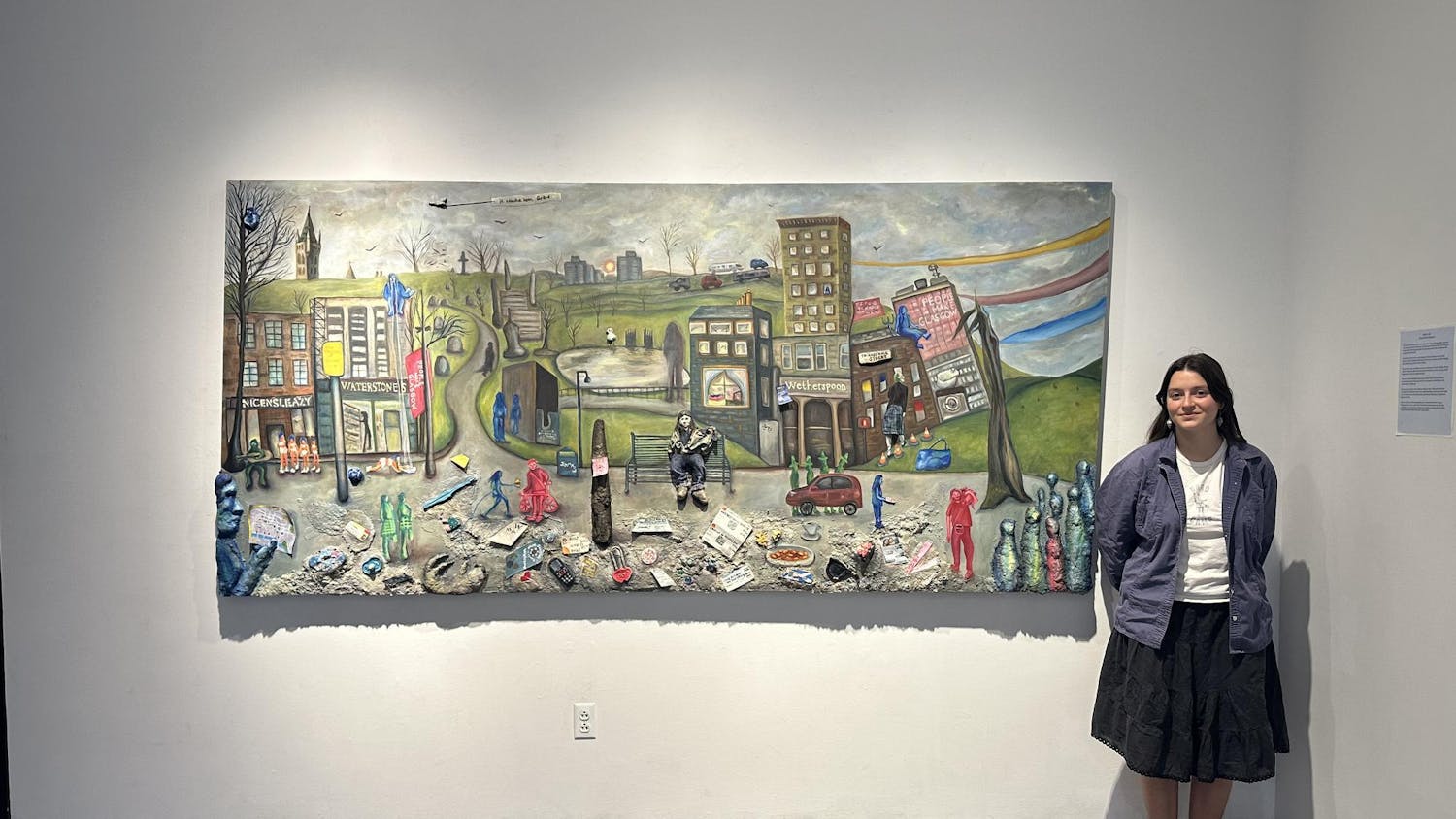English indie band Slowdive celebrates the 25th anniversary of their seminal 1993 LP “Souvlaki” this year. The shoegaze project — comprising Rachel Goswel, Neil Halstead, Simon Scott, Nick Chaplin and Christian Savill — released “Souvlaki” on the coattails of their 1991 debut “Just For a Day,” which only anticipated the autumnal, leveling sonics of “Souvlaki” that have since become indelibly embedded in listeners’ minds and shoegaze bands’ soundscapes. Twenty-five years later, the album still dreamily haunts audiences.
It’s difficult to not praise Slowdive’s ability to weave narcotic compositions of droning guitar riffs, far away vocals and swirling melodies. In the dreamy realm of shoegaze, what canonical band My Bloody Valentine bleeds, Slowdive melts and evaporates. Rachel Goswell’s hazy, drifting vocals layering on top of Neil Halstead’s drowned voice in “40 Days” envelops the audience in the midst of sweeping guitar reverb. And in “Alison,” the album’s opening track, Slowdive instills in listeners a sense of evanescent beauty and simultaneous loss with introspective, wavering lyrics and noise: Halstead somberly sings “Alison, I said we’re sinking / But you laugh and tell me it’s just fine / I guess she’s out there somewhere.” These escapist words and sounds are enough to enchant any weepy, angst-ridden teenager looking out the window on public transportation — it’s just a fact.
And despite the album’s penchant to charm indie kids all over the world, “Souvlaki” is still considered the crown jewel and bastion of the dream-pop, shoegaze genre by any music fan or critic. Inspired by David Bowie’s “Low,” Aphex Twin and Joy Division, and partially produced by musical legend Brian Eno, Slowdive’s second release is deeply beloved for its timeless quality, which evokes the universality of pure, unadultered emotion. Magazines and publications like Pitchfork, Paste and AllMusic now unequivocally name “Souvlaki” as a definitive statement in music — not just shoegaze, but history.
But “Souvlaki” was not always well received by critics. This initial pushback — and subsequent critical reapprisal — are parts of the album’s history that are deeply ingrained into the album’s legacy and mythos. Upon the album’s release in 1993, Melody Maker writer Dave Simpson commented, “I would rather drown choking in a bath full of porridge than ever listen to it again,” and Slowdive, as well as shoegaze broadly construed, failed to compete with American grunge and Britpop, leading to the band being dropped by their label in 1995 after their third release. In the 90s, Slowdive represented a foggy, lush voice in a sea of hook-and-melody, and they quickly fell out of the music scene after refusing to create a pop album.
Something happened, though, and Slowdive’s “Souvlaki” grew to become a superstar revival of 90s shoegaze. Featured in many retrospective reviews, the album quickly gained critical acclaim and a cult following, and it’s easy to understand why. As in most cases of critical reapprisal, the exact causes informing critics’ revised embrace of Slowdive remain indeterminate. The momentum generated by more positive revisionist reviews published after Slowdive’s breakup could simply be a product of capricious music reviewers, whose role is constantly guided by a certain arbitrariness. At any rate, it’s clear from YouTube lyrics videos collated by sixteen-year-olds with 90’s retroactive nostalgia that Slowdive has taken hold of the popular consciousness, with bands like M83, Deafheaven and countless others still echoing Slowdive’s dream-pop wall of sound.
One of the words most frequently associated with Slowdive is “dream,” as evidenced by the dream-pop genre commonly conflated with the band. There is something so unnatural, yet natural, in the band’s presentation of ethereal noise. “Souvlaki Space Station” is beautifully impressionistic in its experimental riffs and vague vocals; it flourishes and blossoms in a way that cannot be described except as “dream-like,” to the chagrin of critics who chastize the dream-pop’s genre’s lazy evasiveness. Tracks like “Dagger” and “When the Sun Hits” dually wield a dangerous sense of melodic optimism with soundscapes of melancholy, demonstrating Slowdive’s sinister yet celestial ability to concoct toppling atmospheres.
“Souvlaki” is the album upon a hill, blending a perfect combination of pop and shoegaze. Slowdive perfected shoegaze’s scope and capacity for pop sensitivity without the usual saccharine quality. It presents sound without edge, it’s hypnotic, it takes its time. Twenty-five years later, “Souvlaki” can continue to dizzy us in a sublime, lucid dream.




